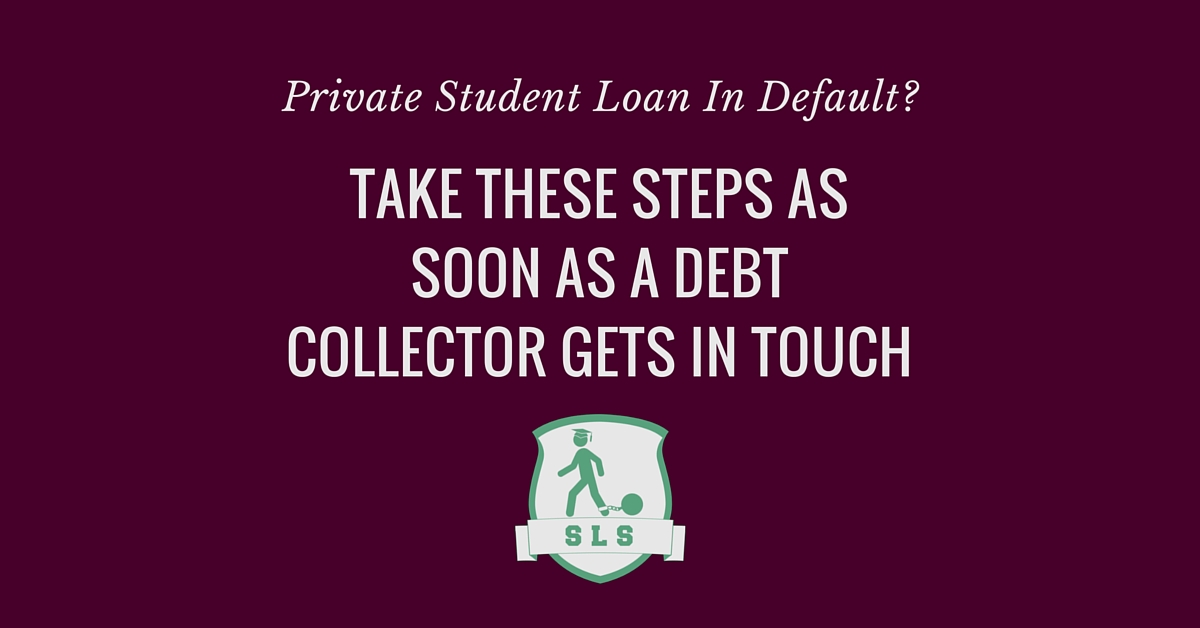In our last episode we talked about whether someone can be arrested for a past-due federal student loan. The story of a Houston man arrested after he failed to appear for a court-ordered deposition stemming from a 29-year-old federal student loan turned out to be nothing more than a scare tactic generated by the media, it made people wonder – what’s the right way to deal with collection attempts?
So on today’s show we’re going to start talking about your best moves during the student loan collection process. That process, particularly in the world of private student loans, is confusing for many student loan borrowers but there are opportunities for you to make an impact and exercise your rights.
Private student loan collection activities are governed by the Fair Debt Collection Practices Act, a federal law covering the ways that third-party debt collectors can go about their business. The FDCPA sets out a number of consumer protections and ensures debt collectors respect your rights.
With that in mind, here are the steps you need to take when you receive your first letter from a debt collector.
What to do When a Debt Collector Contacts You
Review the envelope to determine the postmark date. Under the FDCPA, you get 30 days to ask for validation of the debt and have the collector suspend their activities.
Open the letter and examine it carefully. Check the date on the letter, the name of the creditor and the amount claimed to be due. If you don’t recognize the name of the creditor or the amount doesn’t look correct then you should request validation of the debt before making payment. Also be sure the date on the letter is the same as (or close to) the one on the postmark. If not, you may have to contend with a debt collector that denies your efforts to get the debt validated.
Review your records. Check your bank account statements and prior correspondence with the lender to track your payments and balance history. If there’s a discrepency you’re going to need to provide that information to the collector so you can work out your differences.
Obtain your credit report. Private student loans aren’t shown on the NSLDS system because NSLDS covers only federal student loans. By looking at your credit reports you can see which entities are reporting balances due. This will help you uncover any potential problems.
From there, you can determine whether you have enough information to make a decision on payment. If you don’t have enough information, you should request validation of the debt.
Private Student Loan Debt Validation
Debt Validation, or “debt verification”, refers to your right to challenge a debt and/or receive written verification of a debt from a debt collector. The right to dispute the debt and receive validation are part of the your rights under the Federal Fair Debt Collection Practices Act (FDCPA) and is designed to reduce the incidence of debt collectors dunning the wrong person or attempting to collect previously paid debts.
Though you can dispute all or any part of a debt at any time, only a written request sent within thirty days of receipt of the first written notice of the debt triggers validation rights under the FDCPA. If the debt collector receives your request for validation within the 30-day period it must stop collecting the private student loan debt until it sends you, “verification of the debt or a copy of a judgment, or the name and address of the original creditor, and a copy of such verification or judgment, or name and address of the original creditor.”
There’s no time limit for providing the required verification or other information, but collection activities can’t resume until the collector provides the information to you.
Once you’re received a response to the validation request, you can decide on your best court of action with respect to the private student loan.
Choose Your Course of Action
Make payment in full. Once you have enough information from the collector, you can send payment in full and pay off the private student loan entirely.
Work out a payment arrangement or settle the debt. Many debt collectors will be willing to work out a payment arrangement or settle the private student loan for less than the balance due. Depending on your financial situation, this may be a good option for you – but don’t assume you’re getting the best deal.
In my experience, you’re going to get the best settlement and payment arrangements once the creditor files a lawsuit against you and hire a lawyer to defend the case. Lots of people don’t want to wait that long or go through the hassles and anxiety of a lawsuit, so making a slightly better deal may be outweighed by those considerations.
Make them go away. You are free at any time to send the debt collector a letter demanding that they stop contacting you. That will prevent them from calling and writing more letters, but it won’t prevent the private student loan lender from hiring a new debt collector or deciding to sue you.
Links to Resources
Get My Best Student Loan Advice (FREE)
Enter your email address and I'll send you new episodes and other updates by email. 100% free, and you can cancel at any time (but you won't want to).

